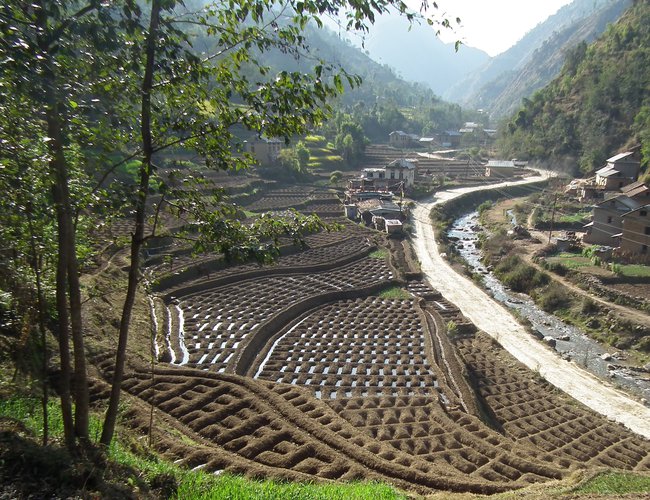
The yearly celebration of World Environment Day on June 5th promotes raising awareness of the developing environmental conflicts that could harm our ecosystem. These conflicts present grave dangers that require our urgent attention if we are to be resolved.
People all throughout the world celebrate it by taking stock of the surroundings they have created and reconsidering their deeds as individuals, groups, and countries. To raise as much awareness as possible about the need to conserve the environment, events, posters, plantations, recycling campaigns, and other initiatives are carried out. It serves as a reminder to adopt a sustainable strategy and protect the finite and depleting natural resources.
The promotion of the 3Rs (Reduce, Reuse, and Recycle) and tree planting are just two examples of environmental consciousness, though. It covers a wide range of topics, including migration, environmental justice, natural resource conservation, and protection.
In terms of global biodiversity, Nepal is ranked 49th, according to the Nepal Biodiversity Research and Conservation Center. One of Nepal's many treasures is its abundant supply of water. Compared to other countries, Nepal has the 43rd-best water resources (https://english.onlinekhabar.com). So it's imperative to keep them safe. Numerous NGOs, INGOs, and development partners are taking action to safeguard it.
Researchers, scholars, experts, and students from Japanese and Nepalese higher education institutions recently shared their perspectives on environmental peace-building at a seminar hosted by the Network for Education and Research on Peace and Sustainability (NERPS), Hiroshima University, Hiroshima University Scholars' Alumni Nepal (HiUSAN), and Department of Conflict, Peace, and Development Studies, Tribhuvan University.
The uncollected rubbish within Singha Durbar and how it was determined to be a political issue rather than an environmental issue were two questions brought up during the floor discussion. The best course of action for resolving these issues was also questioned, along with the role played by politicians in situations like this.
It appears that the government in Nepal is the root of the issue. People who are attempting to address environmental concerns appear to be being hampered by their lack of interest in them.
After more debate, the crowd appeared to have come to the unified conclusion that the situation occurred because the authorities were inattentive to the situation when they were on their own. As a result, issues began to immediately involve politics in an effort to gain attention. That was a blatant sign that the authorities were and are often only interested when a clear system and power are at play.
Additionally brought up and their duties were considered was the significance and importance of local government in environmental problems. The local authority has been carrying out projects like the Dozer actions without taking the environment into account. It was discussed that the local government's commendable effort needed to be scaled up and should be documented. Also mentioned was the requirement for a top-down and bottom-up system.
Few people expressed their dissatisfaction with their interactions with the local entities, claiming that their visit and initiative to speak with them did not go as smoothly as anticipated. Provinces 2 and 3's rural areas appeared to be particularly unconcerned with these problems. Additionally, there were rarely established standards and rules in most places.
The topic of environmental justice must be addressed in order to protect the ecosystem. These include intercultural disputes like the desecration of historical artifacts and monuments and the underfunding of indigenous organisations by the government. These kinds of problems hinder peacebuilding.
A population that is distributed fairly among the land was one of the solutions put forth to preserve the ecological equilibrium. For this, the government's role in decentralizing authority and resources was discussed. A population that is evenly distributed is better for the environment and for us as citizens.
Making ensuring the public can readily communicate and understand the information supplied by climatologists is another fantastic technique to raise awareness. This will stop inaccurate information and malpractice brought on by a misinterpretation of the data.
It was determined that a more multidisciplinary perspective should take the place of the conventional method of tackling issues in an orderly and systematic fashion. The acts and actions made by the government need to be noted and further investigated by organizations. We must always remember how closely tied to our surroundings we are. Our very existence and being will be shaped by what occurs to it. Therefore, taking care of it is not only a duty but also a requirement.
- NAGDHUNGA TUNNEL BREAKTHROUGH: Significant Milestone
- Apr 30, 2024
- Japanese Film Festival And Japan Day In Kathmandu
- Apr 09, 2024
- JENESYS Friendship Ties Program: Learning From Japan
- Feb 05, 2024
- 78th Hiroshima Day: A Look Back
- Aug 08, 2023
- JDS : Japan’s Support To Nepal
- Jul 31, 2023

















